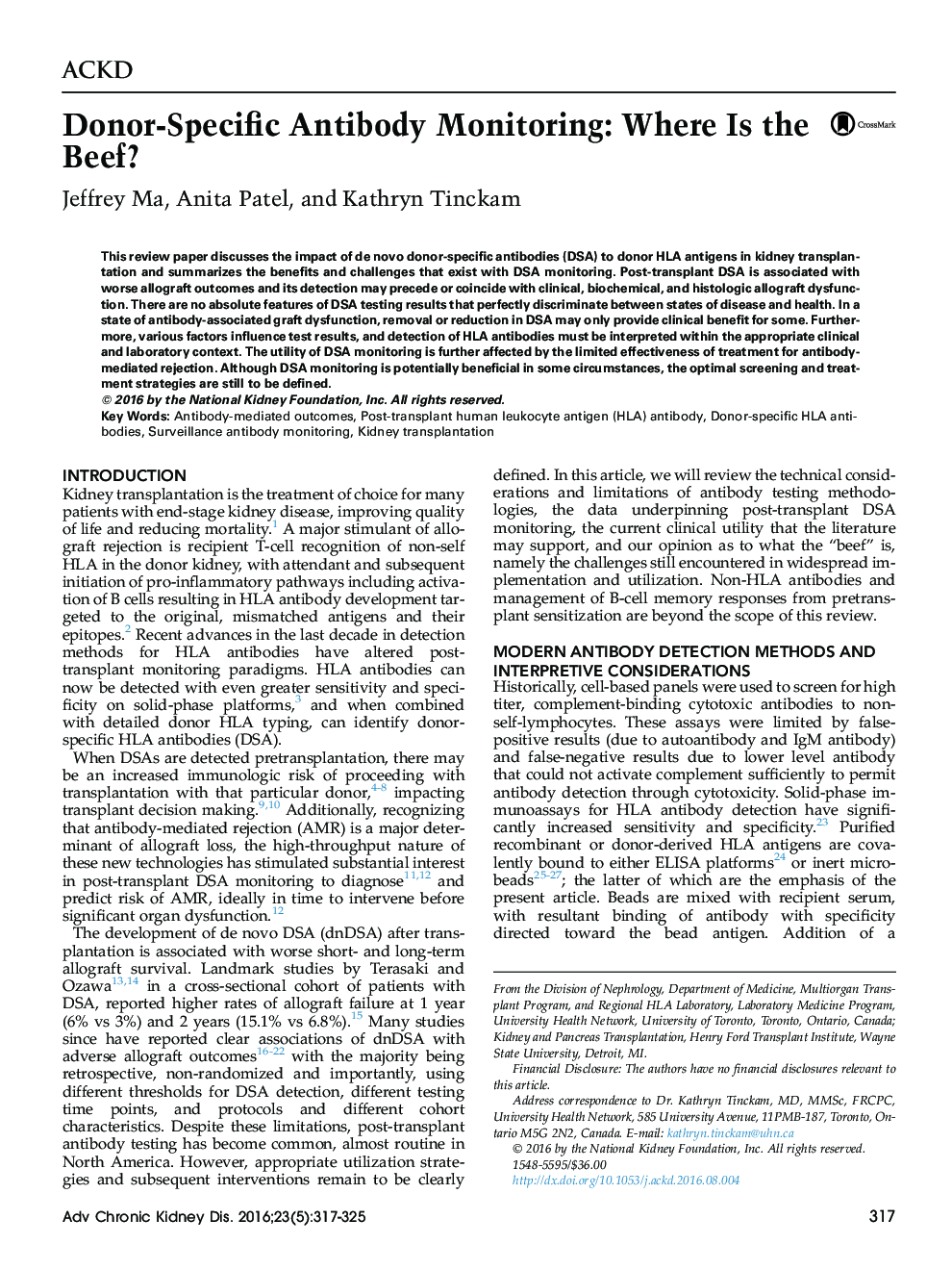| Article ID | Journal | Published Year | Pages | File Type |
|---|---|---|---|---|
| 5685220 | Advances in Chronic Kidney Disease | 2016 | 9 Pages |
Abstract
This review paper discusses the impact of de novo donor-specific antibodies (DSA) to donor HLA antigens in kidney transplantation and summarizes the benefits and challenges that exist with DSA monitoring. Post-transplant DSA is associated with worse allograft outcomes and its detection may precede or coincide with clinical, biochemical, and histologic allograft dysfunction. There are no absolute features of DSA testing results that perfectly discriminate between states of disease and health. In a state of antibody-associated graft dysfunction, removal or reduction in DSA may only provide clinical benefit for some. Furthermore, various factors influence test results, and detection of HLA antibodies must be interpreted within the appropriate clinical and laboratory context. The utility of DSA monitoring is further affected by the limited effectiveness of treatment for antibody-mediated rejection. Although DSA monitoring is potentially beneficial in some circumstances, the optimal screening and treatment strategies are still to be defined.
Keywords
Related Topics
Health Sciences
Medicine and Dentistry
Nephrology
Authors
Jeffrey Ma, Anita Patel, Kathryn Tinckam,
